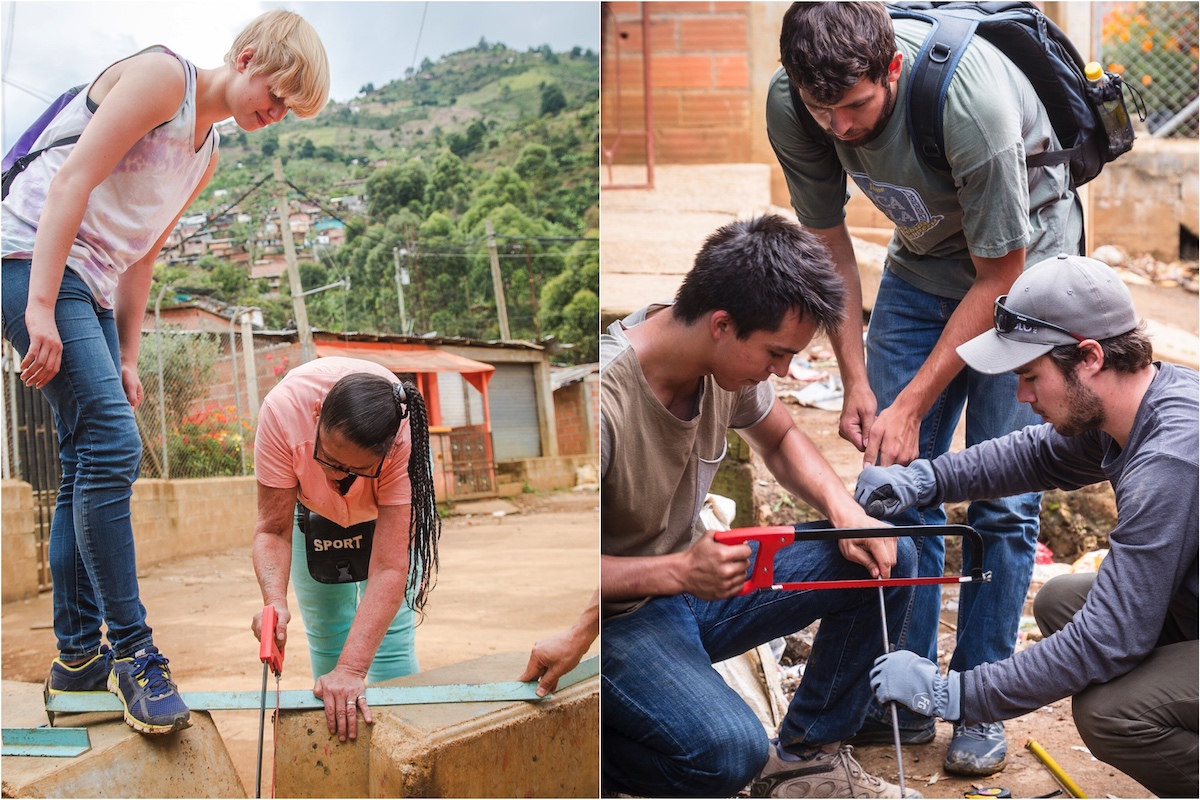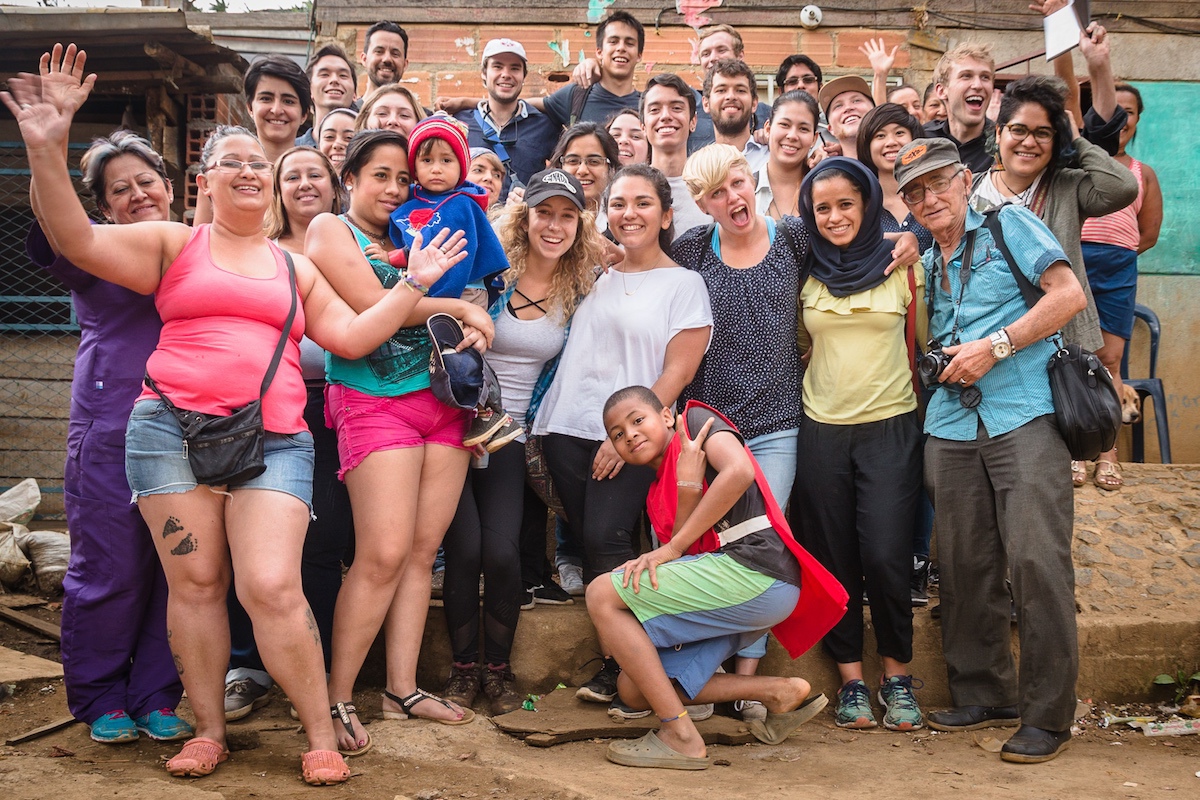More details about the Medellin Practicum/Studio
The 9-credit course will be taught by Jota Samper, Assistant Professor for the Program on Environmental Design, who has been leading education abroad programs in Colombia since 2008. A native of Medellín, he has been living in the United States for 17 years, which has prepared him to serve as an excellent cultural translator between the U.S. and local Colombian culture. He is an architect, urban designer, and planner whose work concentrates on sustainable urban growth and dwells at the intersection between urban informality (“slums”) and violent urban conflict. As a researcher of informality in Medellín, he is very familiar with the history, diverse locales, and people of the city.

Each student will live with a homestay family, eating most of their meals at home and going to family events. Participants will also be matched with compañeras/os (friends), Colombian university students who want to show them around the city and share what it's like to be a young adult in Medellín. All of the families live in the same lush green neighborhood, along with the program director and site coordinator.
This neighborhood was built 50 years ago to provide teachers, students, social workers, and artists with affordable housing that’s within walking distance of the Universidad Nacional de Colombia, the city’s public transportation system, and cultural spaces. Many of the current residents, now grandparents, planted the original tropical trees and gardens. Today, this neighborhood is a thriving intergenerational residential space with homestyle restaurants that serve traditional Colombian food, a bookstore, a public library with one of the best photographic archives in Colombia, cafes, and two art spaces. It is a bustling and safe hangout for university youth and faculty in the evenings and on the weekends, when the city of Medellín often hosts free cultural events.

Students will tour art museums and other cultural centers around the city, including the Museo de Antioquia, Museo Casa de la Memoria, and MDE Museo de Historia Urbana de Medellín, and get to see some of Medellín’s most important cultural events. This includes the annual Flower Festival (Feria de las Flores), which immerses the city in beautiful, elaborate flower arrangements and designs by farmers around the region, honoring the Medellín’s heritage and bringing light to its official nickname, city of the eternal spring.

Students will also learn about and visit many of the urban projects that have won Medellín national and international awards—and serve as models for more inclusive and sustainable urban planning for other cities in the Americas. These projects include hospitals, community centers, library parks, public gardens, and public transportation systems. These excursions last no more than a day, as students always sleep in their homestay families’ homes.
All participants in the Colombia program will be covered under a limited health and accident insurance policy provided by CU Boulder Education Abroad. The cost is included in the program fee.
If you have any questions or concerns about any aspect of the program, don’t hesitate to contact program director Jota Samper (jota@colorado.edu) or site coordinator Ryan Catalani (ryan@mobilitymovilidad.org).
Dates
Application deadline: March 1, 2018
Program: July 8 - August 19, 2018
Contact the directors
Jota Samper
jota@colorado.edu
Ryan Catalani
ryan@mobilitymovilidad.org
Eligibility
This program is open to students of Sophomore class standing or above, with a GPA of 2.5 or above at the time of application. Students should also be able to communicate in basic Spanish.
Costs
Please refer to the CU Boulder Education Abroad website for details about the program fee, what is included in the fee, and what additional expenses may be incurred. Financial assistance and scholarships may be available
Any additional costs will vary depending on the exchange rate of the Colombian peso. In the last year, one US dollar ($1) has been worth between about 2,300 and 3,300 Colombian pesos. That is, a typical lunch that costs 13,000 pesos might be equivalent to something between $3.93 and $5.65.
Other Requirements
US citizens do need not need a visa to travel to Colombia for this program; this will vary for citizens of other countries.